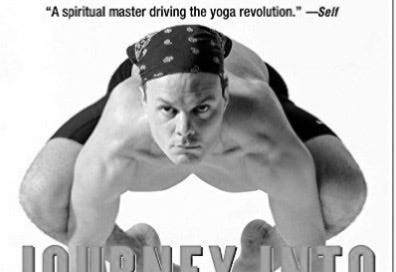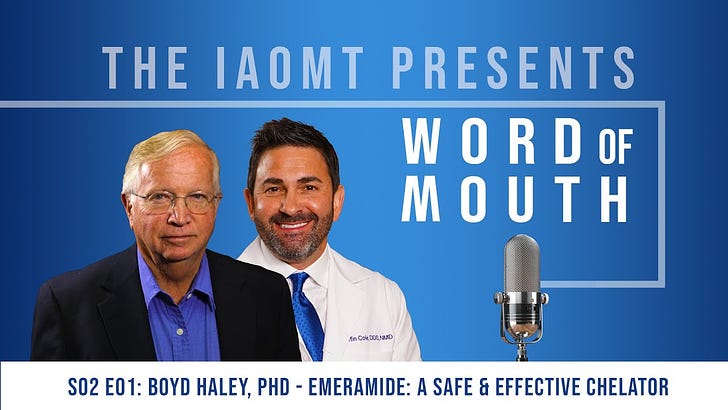He wrote to me on 2/18/23:
Greetings, Dr. and Ms. Yoho:
Today, with my Kappa Alpha Psi Fraternity, I walked the entire length of Fair Oaks Boulevard for the Black History Parade without pain or strain.
You are both the source of my ability to achieve this goal.
Robert, you introduced me to the powerful medicine of exercise. It took away the pain I had suffered from birth until I met you and your health coaching.
Ms. Yoho, you introduced me to the healthy eating that I am devoted to.
At 90 years old, I feel good, very good. And I continue to thank you. You vitalized my life.
—A grateful James
This story began in 1978 when my wife (then married to someone else) met Smith, a Ph.D. psychologist with a local practice. In 1981, I arrived in Los Angeles for medical training, worked as an emergency physician, then started a private practice. Around 1985, I saw Smith's son in my clinic and did not charge him.
Dr. Smith came to my office because was having trouble walking up and down stairs. He also told me about his lifelong back pain. The only cause for his complaints seemed to be deconditioning.
I invited him to my gym and showed him how to use the exercise machines. I told him he needed to lift weights for 45 minutes two to three times a week. I recommended using each machine once for a total of 20 sets of about eight repetitions each.
I lost track of him for six months. One day he came in and told me that all his pain and walking problems were gone. He had been going to the gym twice a week and loved it.
During the last decades of Smith's career, he was invited to join the California Medical Board and later the California Bar. These bureaucracies oversee the professional practice of law and medicine. I thought at first he might have some influence to protect my group of surgeons against the anti-competitive practices of the plastic surgery associations. However, Dr. Smith told me that when he was appointed to each position, the politicians explained the facts of life. Their rules were that you did as they told you, or you would be fired.
The second part of the story started a few years later during my enthusiasm for Dr. Greger and his vegetable diet. My wife became a vegan chef, and we were strict about it for over a year. Dr. Smith listened to us, became a vegan, and I gave him a copy of Michael Greger's book, How Not to Die.
But because I lost strength, after a year our family started eating animals again. Smith felt great as a vegan and persisted. Over the years, as we stayed in contact, I concluded that he was part of the (possibly) five percent who could adapt to Greger's eccentricities.
Dr. Smith says his other health secret is that he refuses to use prescription or over-the-counter drugs. He does not even take Tylenol (acetaminophen) for his shoulder arthritis. During my recent podcast with Paul Thomas, MD, I learned this drug has health hazards and should be used carefully if at all. Dr. Paul recommends discarding it but adds, since it is hazardous waste. to avoid flushing it down the toilet.
The exercise section from Hormone Secrets
Sam's text: Hi, I wanted to tell you I work out with a trainer and have gained muscle and lost 15 pounds. I have been on the [homone] medicines for about a year and started working out eight months ago. Thank you for changing my life for the better.
(Note: Besides it’s other advantages, testosterone replacement is the most effective long-term weight loss drug for men or women ever invented.)
What exercise should I do while using hormones? For best results, easy weightlifting is compulsory. Use the machines at the gym for a minimum of a half-hour twice a week. This is enough unless you have a special interest. For either sex, your progress will be more rapid if you are on testosterone.
Start with one set of eight to ten repetitions using ten to fifteen machines. These are easy to operate, but get some advice if you are new to it. Try to use muscles from every part of your body during each workout: legs, back, chest, and shoulders. Splitting your routine between body parts on different days is only necessary if you get serious.
Lift light weights at first. Do not worry about getting big; it does not happen with this type of program. The machines are designed for safety and injuries are rare. Your body will noticeably improve within a month. Woody Allen's saying applies here: "Ninety percent of success is just showing up." You will also get a broad sense of optimism after your workouts no matter how you felt before.
Where I live in Los Angeles, yoga is virtually a sacrament. Back, shoulder, or neck pain will improve within a month after starting practice. Six to twelve months of hands-on instruction is helpful. The teachers get tiresome, but I like Baron Baptiste. One of his fans said that doing his workout for a half-hour daily put him in the best shape of his life.
"Flow" and "hot" yoga are challenging varieties. Bikram is one of the most demanding. This is a cult—I know because I was a card-carrying member for eight years. The heat in the rooms has crept up every decade and now is sometimes above 110 degrees—just too darn hot. Some instructors discourage drinking water during the workout, and students occasionally get heat exhaustion and pass out. They are dragged out of the studio and rushed to the emergency room.
Once you know yoga basics, you can use online classes. Practicing thirty to forty minutes three days a week is all you need to be durable, flexible, and have excellent posture. If you do yoga at home, you will have no parking trouble, do not have to put up with other sweaty students, and you will not have to listen to the idiocy such as curing cancer with backbends. You might even violate a few rules such as wearing shoes, using weights, and listening to podcasts or music.
If you are motivated, the next step is to find a sport you enjoy.
Massage can help your mobility, especially deep tissue. Consider taking Advil before you go so you can tell your masseuse to be aggressive.
Vegan theology explained
I listened to Michael Greger's evangelizing several years ago, spent hours on NutritionFacts.org, and became a strict vegan for a year. Dr. Greger is a self-assured, convincing salesman, but I soon learned he was an "ethical" vegan. One of my close friends who held the same ideas told me what this means. Like Greger, she said she cares more about "the wonderful animals" than her health. This was not me, so when I weakened, I quit the diet and recovered.
Dr. Joseph Mercola interviewed Mara Kahn on 2/20/21 about her book HERE (or HERE). She says vegetarianism is a healthy, venerable diet that emphasizes vegetables. It may include dairy, eggs, fish, and even occasional meat. Veganism is new. Donald Watson, the founder of England's Vegan Society, coined this word in 1944 and concocted the idea of an "ethical" vegan after watching a pig get slaughtered. He concluded that killing animals was immoral and subsequently used his ideas to belittle vegetarians who ate so much as a piece of cheese.
Michael Greger holds "animal rights" dear as well. On his Nutritionfacts.org, he defines vegan diets as eating "nothing with a face or a mother"—no dairy, animals, or even fish. He and his ilk are evangelical about it. Since they want to convert everyone, they make dubious claims about how eating animals injures human health and even world ecology. For my rebuttal of the related carbon myths, download Cassandra’s Memo. If you start to fall for vegan propaganda, bear in mind that they think that tens of thousands of years of human dietary practices are immoral.
What about the health claims? Science is not always double-blind placebo-controlled trials. Since these large studies are nearly universally ruined by bribery from big Food, big Pharma, or other industry funders, “anecdotal" stories about one or a few patients are often more convincing. John Ioannidis, the renowned Stanford study design expert, adds that most trials of diet and health are worthless because they are too small, not randomized, or otherwise biased. (My paraphrase, not a quote.)
Maria Kahn has an anecdote related to mine. She was a strict vegan for 20 years and was weak, nervous, and insomniac. When she worked at a salmon processing plant in Alaska, her body told her to eat something new. She grabbed a fish, took it home, and had her first animal protein in twenty years. Kahn’s improvement was immediate. Her health soared, her muscles developed, and her "lights went on"—she became alert and optimistic.
This experience motivated Ms. Kahn to spend six years researching and writing her book debunking veganism. She learned it is a recent Western world trend that had at most only two million US followers. She also found that despite vegans' religious fervor, few are strict about what they eat. India, for example, is touted as a paragon of vegetable virtue. But although it has many plant eaters, absolute vegans are rare. Kahn could not find a society in human history that survived long-term eating this diet.
Those who convert to veganism are healthy at first. But as deficiencies of B12 and other nutrients develop, most get sick and drop out. As they quit, they face shaming by their colleagues. If caught in a grocery store buying eggs, some have even lost their spouses.
Fish and animals contain critical nutrients. Omega-3 fatty acids are an example. These include Docosahexaenoic acid (DHA), eicosapentaenoic acid (EPA), and alpha-linolenic acid (ALA). The first two are essential for growth and development of infants' brains and are required for adult brain function. They mitigate inflammation, decrease blood pressure and heart disease, and the primary dietary source is fish. DHA improves learning ability, whereas deficiencies of DHA are associated with learning deficits. (Note: since ocean fish are now contaminated with mercury and other toxins, the current recommendation is to eat small ones that are lower on the food chain. Cold water fish such as sardines or anchovies are safest.)
Here are nutrition facts not mentioned in "NutritionFacts.org.
Two founders of the Vegan Society developed Parkinson's Disease. When their blood DHA was measured, it was zero. Studies have backed the protective effect of DHA for Parkinson’s. I have an intention tremor, a related but less damaging condition. After I understood the above, I started eating sardines (ugh), oysters, and taking Ultimate Omega fish oil supplements. I will let you know how it goes. (Correction: Fish oil has health controversies and should probably not be taken long term. See the end of the next post.)
Since ethical vegans' primary concern is animal welfare, this biases the nutritional research they do. Nutritionfacts.org's literature surveys have the same problem. For example, Greger writes that fish oil supplements are discredited. He cites a single source. He recommends taking yeast or algae-derived) long-chain omega-3 supplements instead. During my vegan days, I parroted this absurdity to patients. You cannot easily get enough DHA from plant sources such as marine algae or flaxseed.
Another example of conflicts of interest is the 2009 American Diabetes Association position paper that advocates vegetable diets HERE. Two of the coauthors were vegan or vegetarian.
Studies of vegans mostly compare apples to eggs—nearly all evaluate people who eat some animal products, which render all distinctions moot. Literature reviewers face the same problem, for proper studies of strict vegans are as rare as unicorns. Nutrition “facts" about them are in their infancy.
These diets have no readily available B12. If animal sources are not eaten, and the believer does not supplement, their body’s stores are gone within five to seven years. Greger recommends his followers take B12 pills derived from plants such as flaxseed or algae. He forbids fish oil, for fish have faces, and dairy—eggs have mothers.
Vitamin B12 deficiency can cause severe and irreversible damage, especially to the brain and nervous system. Wikipedia:
At levels only slightly lower than normal, a range of symptoms such as feeling tired, weak, feeling like one may faint, dizziness, breathlessness, headaches, mouth ulcers, upset stomach, decreased appetite, difficulty walking (staggering balance problems), muscle weakness, depression, poor memory, poor reflexes, confusion, and pale skin, feeling abnormal sensations, among others, may be experienced, especially in people over age 60. Vitamin B12 deficiency can also cause symptoms of mania and psychosis. Among other problems, weakened immunity, reduced fertility, and interruption of blood circulation in women may occur (my emphasis).
Do vegans sometimes act "off" or even a little crazy? Could it be low B12 levels?
There was a gap between the start of the vegan fad in 1944 and the vitamin shops, fortified cereals, and more substantial knowledge about B12 in the 1970s. Recall that veganism was unknown before 1944. The first successful treatment of B12 deficiency was in 1948. Although there was earlier inferential data about B12, the structure was only worked out in 1955-56. The first synthesis was performed in 1972, but that process had no commercial application. By the 1970s, the vitamin became widely available as a supplement and was used in human preparations including the Meyers intravenous "cocktail." Greger entered the scene in 2011.
Clarity about the vegan B12 problem developed slowly. Before the science was clear, if people survived as vegans for more than a few years, they had to somehow find out about the early supplements. Others eventually became ill with B12 and other deficiencies. Most must have eaten some eggs or fish and so were not real vegans. Like "Jack Mormons," they claimed to believe but were not in the choir, just like today.
Nutrition science is incomplete, and other as-yet-unknown nutrients are likely missing from vegetables as well.
Further absurdities:
Some vegans maintain that "insect lives matter." They conveniently forget that agriculture kills millions of animals, such as bees, insects, and small mammals. Kahn says that there is "no animal-free lunch."
Another school of loosely related crazy thought says that plants are sentient, have feelings, and know when they are being eaten.
Maria Kahn concludes:
We need saturated animal fat and cholesterol. The original message that these are unhealthy is wrong.
Your body is talking to you. Listen to its advice!
We do not fully understand what foods are best or how it all works.
Postscript about cancer: I presented Dr. Nick Brandy's ideas about cancer cures with vegetables a few months ago, and these may have merit. HERE is a similar story about Chris Wark, a man who developed colon cancer in his 20s. His tumor was classified as stage 3 C, which had spread to adjacent structures and lymph nodes. He had surgery, which cures half of the patients at this stage but refused chemotherapy. Chris attributed his survival to becoming a vegan, but he may have simply won the coin flip.
Spoiler: The vast majority of vegetable oils that Americans eat are inflammatory and damage health. Animal fats, in contrast, reduce the risks of cancer, heart disease, and neurological conditions including Alzheimer's. I support this statement in an upcoming post, "Mercola Discovers the Dietary Rosetta Stone."
The Cassandra's Memo ebook is free HERE if you promise to send this download link to five or more others. With your help, we will educate some people sitting on the fence.
BONUS: I am also giving away the Hormone Secrets and Butchered by "Healthcare" ebooks using the same arrangement; you can download them free HERE and HERE if you send the links to your friends.
















Share this post